States remain split on how to end lockdowns once and for all
Any hope that premiers are on the same page about the path out of Covid have been dashed, and it appears Australia is set to remain divided.
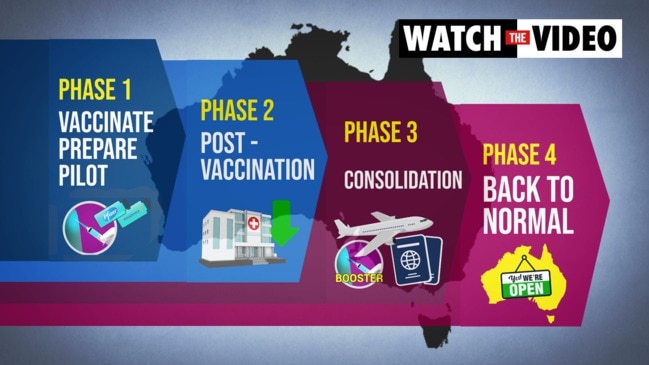
Australia’s recovery from Covid-19 looks unlikely to be a unified one, with some states signalling their intention to go rogue on a national effort to reopen the country.
States and territories have agreed to Prime Minister Scott Morrison’s four-phase reopening plan, which sets out what new freedoms Australians can expect at each milestone of the vaccine rollout, and provides certainty around lockdowns and borders staying open.
Under the plan, restrictions across the country will ease when 70 per cent of Australians aged 16 years and over are vaccinated, and a vaccination figure of 80 per cent will trigger the end of lockdowns and the gradual return of international travel.
But with Delta outbreaks still raging in parts of the country, some states are already pushing back on the unified front and threatening to pull in different directions.
West Australian Premier Mark McGowan, who enforced some of the toughest entry rules in the country, has indicated he was not willing to open the state if it was Covid-free when the PM’s vaccination targets were met.
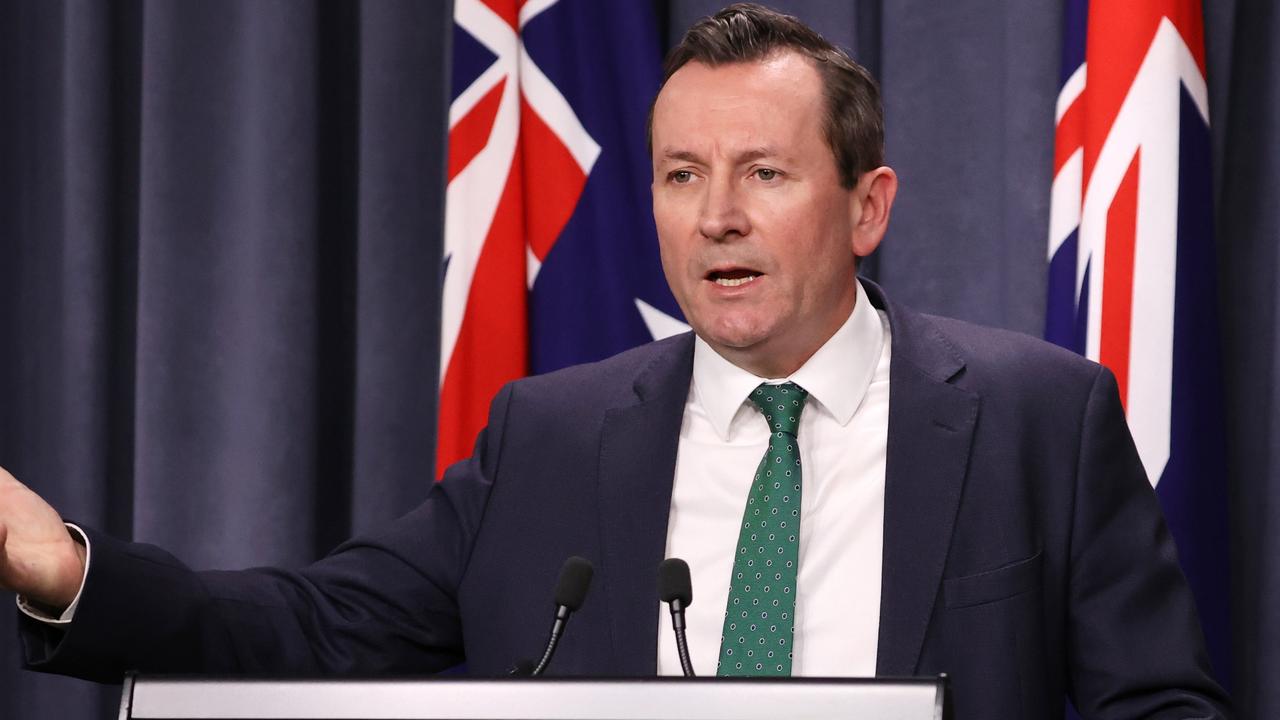
“If there’s thousands of cases out there and those cases are seeded into a jurisdiction without Covid, obviously the risk is much higher,” he said.
“That’s the problem that jurisdictions that have no Covid face, and I raised that point today. The idea that we just deliberately infect our citizens, if we have no Covid when we get to 70 per cent two-dose vaccination, I just can’t do.
“People would die and we would have huge dislocation. It’s different for other states that have Covid-positive people.”
Mr McGowan’s comments yesterday came as two truck drivers from NSW tested positive to Covid-19 in Western Australia.
“The idea that somehow we just bring down the border, we just allow for open travel from NSW or Victoria and infected people come in and we just let the infection run at 70 per cent two-dose vaccination would just be a catastrophe,” Mr McGowan said.
“So I’m just not going to do it.
“But obviously if we do have Covid in the community, if we can’t be successful in keeping it out, well obviously all those analyses change.”
Friday’s national cabinet was presented with data that showed Western Australia and South Australia were the most vulnerable states to virus outbreaks because their vaccination rates were lower than others, The Weekend Australian reported.
Modelling on the effective reproduction rate of the virus takes into account vaccination levels and restrictions. NSW — which is in the grips of the nation’s worst outbreak, but is in lockdown and leading the country’s vaccination rollout — has a reproduction rate of 1.03. The ACT has a rate of 0.86.
However, WA has a rate of 3.09, slightly ahead of South Australia with 2.45.
Mr McGowan has defended his state’s slower vaccine rollout, saying West Australians weren’t given the same volume of vaccine supplies as NSW got.
State leaders divided on national plan
Modelling released by the Doherty Institute this week indicated the pursuit of “Covid zero” would be impractical if there were still cases in the community when restrictions eased with 70 to 80 per cent vaccine coverage.
However, the focus would shift to public health measures to reduce the number of people being hospitalised and dying from the virus, and with enough vaccination, the virus will become less of a burden on the health system.
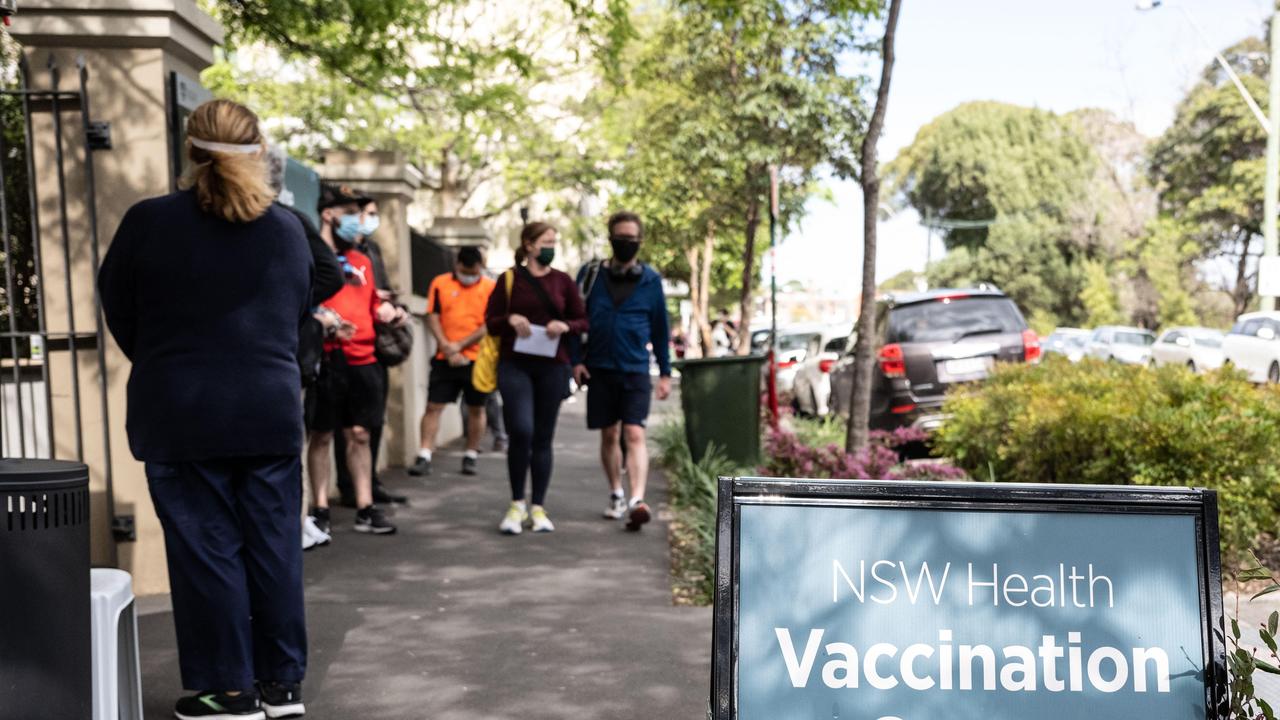
The Doherty Institute maintains opening with 70 per cent adult vaccination will be safe, even with cases in the community. National cabinet has agreed to assess how state hospital and health systems are equipped to handle any additional demand.
The institute’s vaccination modelling is based on Australians aged 16 and over, as younger children are considered to have less risk of serious illness from Covid-19.
NSW, Victoria and South Australia have endorsed the plan to start lifting restrictions at the 70 per cent vaccination benchmark.
Tasmanian Premier Peter Gutwein said he would consider the state’s border policies when vaccination targets were reached.
“If we were to have a Delta outbreak here in Tasmania we would deal with it and our economy would move on,” he said.
“I would hope that lockdowns would be a thing of the past once vaccination rates reach 80 per cent (vaccinated).
“Before Tasmania can move through the next levels of the national plan, 70 per cent of the country needs to have been vaccinated.”
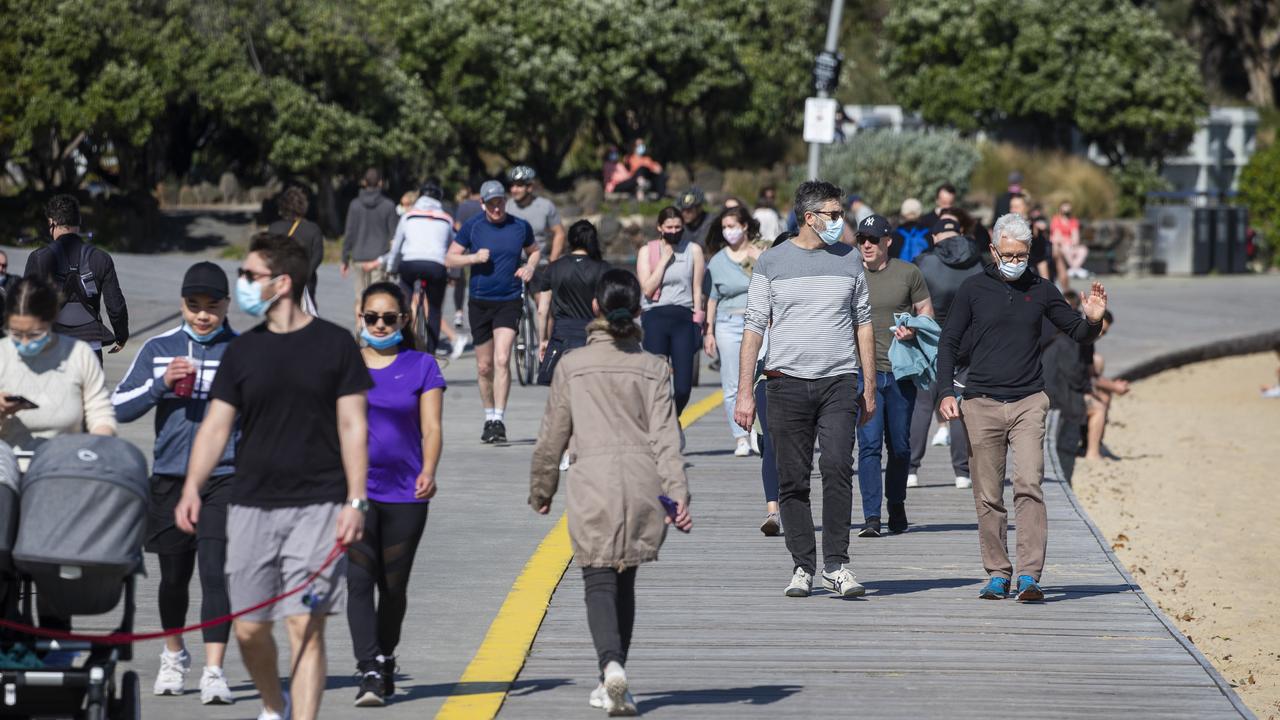
ACT Chief Minister Andrew Barr said he wants children aged 12 to 15 included in the vaccination thresholds.
The Northern Territory’s Chief Minister, Michael Gunner, has flagged a higher vaccination threshold may be needed to protect the territory’s vulnerable remote communities.
“If remote communities require a higher rate of vaccination, that impacts my policy decisions going forward,” he said earlier this month.
“I need really high vaccination rates here, probably higher than the Doherty Institute is flagging in their modelling.”
Queensland, another state with notoriously strict border controls, will back the national plan but Premier Annastacia Palaszczuk has said she was intent on suppressing the virus.
“We continue to back the nationally agreed plan for lockdowns to be minimised and restrictions to be limited when vaccination rates reach 70 to 80 per cent,” she said this week.
“Our aim is always to suppress that virus but even at 70 per cent and 80 per cent vaccination rates … there will be some limited restrictions and some limited or specified lockdown.”
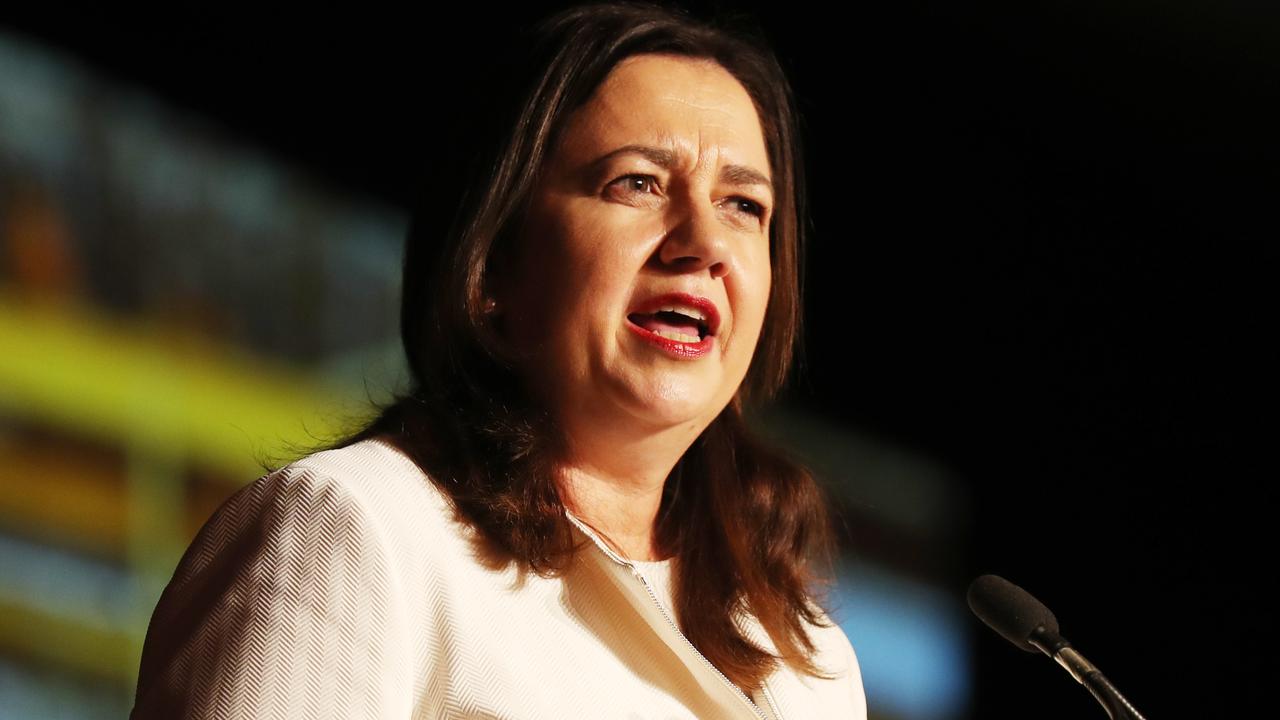
But the Courier Mail reports there were two key moves by Ms Palaszczuk that suggests she would be carving her own path out of the pandemic.
The first, according an editorial by the publication, was Ms Palaszczuk’s announcement this week of a two-week pause on interstate relocations into Queensland, leaving people in the lurch with only a couple of hours’ notice.
The other is her left-of-field announcement this week that construction had begun on Queensland’s own regional quarantine facility in Toowoomba.
The ABC reported the announcement had caught many off guard, including Toowoomba Regional Council Mayor Paul Antonio, who said he found out just one minute before Ms Palaszczuk’s press conference on Thursday.
Ms Palaszczuk was asked on Friday why even the Prime Minister hadn’t been informed before her announcement about the quarantine facility.
“Well, he doesn’t tell me a lot of things that he does either,” she said.




